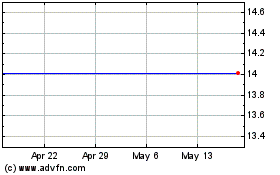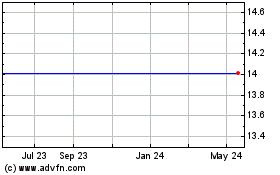Affymetrix Technology Helps Advance Schizophrenia Research
August 13 2008 - 7:00AM
Business Wire
Affymetrix Inc. (Nasdaq:AFFX) announced today that researchers
around the world have used the Affymetrix Genome-Wide Human SNP
Arrays 5.0 and 6.0 to uncover important links between copy number
variations (CNVs) and schizophrenia. Researchers from the United
States, Europe and Asia published their findings in recent issues
of Nature and Nature Genetics. Schizophrenia is a chronic and
disabling disorder that affects 2.4 million Americans alone. Even
with the best treatments currently available, most patients do not
recover fully.1 About 40 percent of the disease is thought to be
inherited, and the other 60 percent sporadically shows up in people
whose family history does not include the disease.2 The results of
the recent studies could help clinicians develop potential drug
targets and enable better diagnoses for more personalized
treatments. The first study was conducted by a team of scientists
from the Columbia University Medical Center. They used the
Affymetrix SNP Array 5.0 to uncover a clear link between rare de
novo copy number variations and sporadic schizophrenia in an
African population.3 The team discovered 17 de novo CNVs in
patients with schizophrenia and showed that rare de novo CNVs are
approximately eight times more likely to appear in sporadic cases
with schizophrenia than in unaffected individuals. A number of
genes harbored within these detected gains and losses are members
of pathways previously associated with neural development and RNA
binding and processing. �This is the first high-resolution,
family-based study which examined in a systematic manner whether
rare copy number mutations contribute to sporadic schizophrenia,�
said Maria Karayiorgou, M.D., professor of psychiatry at Columbia
University Medical Center. �The Affymetrix technology made it
possible for us to discover that de novo copy number mutations
account for at least 10 percent of the non-familial cases of this
devastating disease. Now that we better understand what brain
development pathways are involved with schizophrenia, we can look
at better ways of treating it in the future.� The second study was
carried out by the International Schizophrenia Consortium (ISC),
which consists of researchers from the U.S., Europe and Australia.4
A third project was performed by the SGENE collaboration, a group
of 18 institutions across Europe, the U.S. and China.5 The two
groups used the Affymetrix SNP Array 6.0 to detect genetic
deletions associated with schizophrenia in the same three
locations: chromosomes 1, 15 and 22. The SGENE collaboration
located an additional deletion on chromosome 15, and the ISC found
that people with the disease are generally more likely to carry
rare chromosomal structure changes than those without the disease.
�Identifying these genetic deletions provides us with rich clues to
follow up in future research on schizophrenia,� said Pamela Sklar,
M.D., Ph.D., associate director, Psychiatric and Neurodevelopmental
Genetics Unit in the Center for Human Genetic Research at
Massachusetts General Hospital, director of genetics, Stanley
Center for Psychiatric Research at the Broad Institute and a member
of the ISC. �Recent advances in high-quality genotyping, such as
the newest chip technologies from Affymetrix, enabled us to
determine the importance of copy number variations through true
genome-wide surveys.� �The Affymetrix SNP Array 6.0 enables
researchers to perform the most powerful whole-genome association
and copy number studies ever by genotyping more markers across more
individuals at a lower cost per sample,� said Kevin King, president
of Affymetrix. �Scientists around the world are using this power to
discover rare genetic variations associated with complex diseases.
These three recent schizophrenia discoveries are great examples of
research breakthroughs that should bring us closer to a day when we
can diagnose, treat and potentially cure this debilitating
disorder.� About Affymetrix Affymetrix GeneChip� microarray
technology is the industry-standard tool for analyzing complex
genetic information. After inventing microarray technology in the
late 1980s, Affymetrix scientists have been dedicated to developing
innovative products that provide researchers with a more complete
view of the genome. These products continue to accelerate genetic
research and enable scientists to develop diagnostics and tailor
treatments for individual patients by identifying and measuring the
genetic information associated with complex diseases. Today,
Affymetrix technology is used by the world�s top pharmaceutical,
diagnostic and biotechnology companies, as well as leading
academic, government and not-for-profit research institutes. More
than 1,700 systems have been shipped around the world and more than
13,000 peer-reviewed papers have been published using the
technology. Affymetrix is headquartered in Santa Clara, Calif., and
has manufacturing facilities in Sacramento, Calif., Cleveland,
Ohio, and Singapore. The company has about 1,100 employees
worldwide and maintains sales and distribution operations across
Europe and Asia. For more information about Affymetrix, please
visit the company�s website at www.affymetrix.com. Forward-looking
Statements All statements in this press release that are not
historical are �forward-looking statements� within the meaning of
Section 21E of the Securities Exchange Act as amended, including
statements regarding Affymetrix� �expectations,� �beliefs,�
�hopes,� �intentions,� �strategies� or the like. Such statements
are subject to risks and uncertainties that could cause actual
results to differ materially for Affymetrix from those projected,
including, but not limited to: risks and uncertainties relating to
commercial success of the agreements with Columbia University
Medical Center, the ISC and SGENE discussed in this press release;
risks of the company�s ability to achieve and sustain higher levels
of revenue, higher gross margins and reduced operating expenses;
uncertainties related to technological approaches, manufacturing
and product development; personnel retention; uncertainties related
to cost and pricing of Affymetrix products; dependence on
collaborative partners; uncertainties related to sole-source
suppliers; risks associated with past and future acquisitions;
uncertainties relating to FDA and other regulatory approvals;
competition; risks relating to intellectual property of others and
the uncertainties of patent protection and litigation. These and
other risk factors are discussed in Affymetrix� Form 10-K for the
year ended December 31, 2007, and other SEC reports, including its
Quarterly Reports on Form 10-Q for subsequent quarterly periods.
Affymetrix expressly disclaims any obligation or undertaking to
release publicly any updates or revisions to any forward-looking
statements contained herein to reflect any change in Affymetrix�
expectations with regard thereto or any change in events,
conditions or circumstances on which any such statements are based.
NOTE: Affymetrix, the Affymetrix logo and GeneChip� are registered
trademarks owned or used by Affymetrix Inc. 1
http://www.nih.gov/about/researchresultsforthepublic/Schizophrenia.pdf
2 http://cumc.columbia.edu/news/press_releases/gene-mutation-
schizophrenia.html (Due to its length, this URL may need to be
copied/pasted into your Internet browser's address field. Remove
the extra space if one exists.) 3 Xu, B. et al. Strong Association
of de novo copy number mutations with sporadic schizophrenia,
Nature Genetics, 2008 Jul;40(7):880-5. 4 International
Schizophrenia Consortium, Rare chromosomal deletions and
duplications increase risk of schizophrenia, Nature, doi:
10.1038/nature07239 (2008) 5 Stefansson, H. et al., Large recurrent
microdeletions associated with schizophrenia, Nature, doi:
10.1038/nature07229
Affymetrix (NASDAQ:AFFX)
Historical Stock Chart
From Aug 2024 to Sep 2024

Affymetrix (NASDAQ:AFFX)
Historical Stock Chart
From Sep 2023 to Sep 2024
